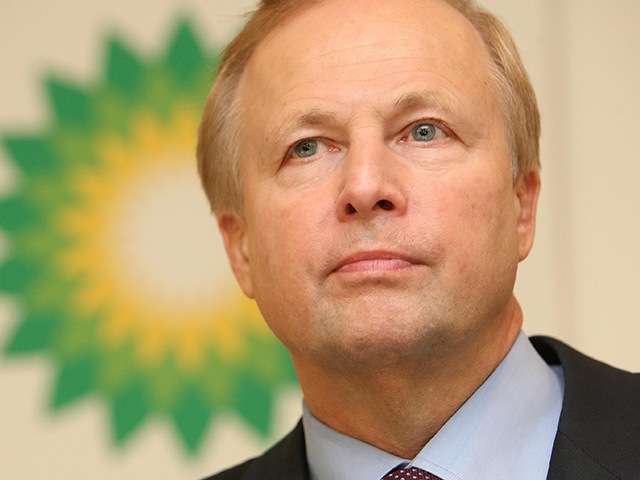
BP’s directors today suffered a symbolic slap in the face after shareholders voted against their pay rises.
Nearly 60% rejected the directors’ remuneration report that granted Chief Executive Bob Dudley a 20% increase, taking his package to £14million.
The boost was awarded despite the group posting its largest annual loss for 20 years and axing thousands of jobs worldwide.
While the directors have already been paid and the vote is not binding, it sends a clear message of dissatisfaction.
Just 40.89% of shareholders voted in favour of the report at the annual general meeting in London, compared to 59.11% against.
Professor Dame Ann Dowling, who chairs the remuneration committee, told shareholders the company took feedback about directors’ pay “really seriously”.
She said the concerns raised would be considered in the coming months as part of a review of the remuneration policy.
It will examine how the policy can be simplified while retaining a strong link to long-term performance.
It will also look at the criteria and measures used to judge performance, including how the firm deals with oil price fluctuations in the future and the link to shareholder value.
Dame Ann said she would engage directly with shareholders as part of the process to ensure their views are heard.
The board faced difficult questions from the floor, including on the morality of paying its directors such large sums.
Adam Matthews, representing the Church of England pensions board, asked whether the figures were “morally right” given the headline performance of BP last year.
He also questioned how much one person needed to be paid to be incentivised.
Captain David Hawker said it was not the right time for pay rises when most people were facing austerity.
He added: “The situation today in this country and in much of Europe is austerity.
“While so much of our population must accept austerity, it is not the time to increase directors’ remuneration.”
Another shareholder, who introduced himself as Bill Parker, asked why Mr Dudley was paid a bonus for safety when it “should be inculcated in his job”.
And Grace Smith suggested a shake-up of the membership of the remuneration committee to include private shareholders, an idea Chairman Carl-Henric Svanberg said would be looked at.
Responding to the questions, Dame Ann said it had been “a really good year” for Mr Dudley and his team, pointing to the various factors that are taken into account when pay levels are being determined.
Earlier Mr Svanberg also paid tribute to his man and the “major role” he had played.
In his opening remarks, he said: “We have always judged the executives’ performance not on the price of oil or the bottom line of the company but on measures that are clearly within management’s control.
“From that perspective the board has concluded it has been an outstanding year. The pay reflects this and it’s consistent with our policy.”
On the pay levels, Dame Ann pointed to the international nature of the business, adding: “Our aim in remuneration is to have a process that attracts talented people to the company.
“We don’t aim to be the market leader and pay the most, we have balance.”
Pay is based on three parts – base salary, annual bonus and long-term bonus.
She said the 2015 base remained unchanged and would do so for executive directors this year as well.
She also defended safety as a criterium because it “concentrates everyone’s minds”.
She said there may come a time when it need not be taken into account as part of the pay structure, as it becomes totally embedded in the culture.
But she insisted: “At this time it would send a wrong message to say we have finished with safety now.”
BP slumped into the red by 5.2billion US dollars (£3.6billion) over the last year following a collapse in oil prices.